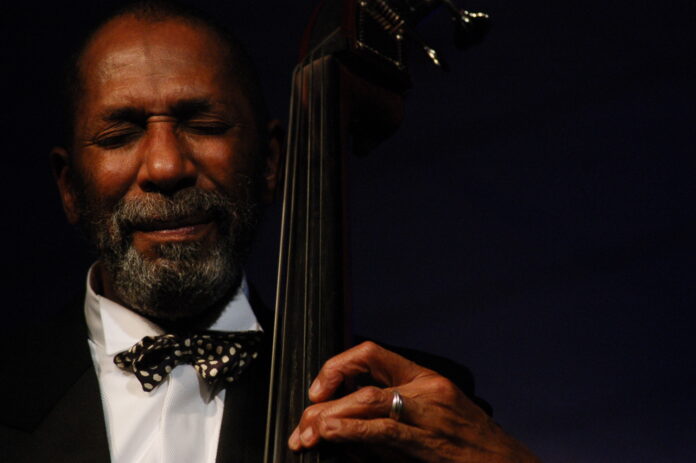According to Guinness World Records, Ron Carter, who turned 85 last week, is the most recorded bassist in jazz history. With more than 2,200 credits under his belt, it’s not the raw metadata that makes him superior; it’s the attitude displayed, and where he chooses to put it.
A timekeeper and alchemist like no other.
His talent-assist stretches from Antonio Carlos Jobim to rumored overdubs for none other than Boosty Collins during Parliament-Funkadelic sessions. Stanley Turrentine to Aireto, Billy Joel to Bach. It’s hypnotic.
From 1963 until 1968, he backed up Miles Davis in his second quintet, which comprised of Herbie Hancock, Wayne Shorter, and drummer Tony Williams. That’s the starting point where future generations of sample hunters would discover his sound. During the 1970s, Carter worked as an in-house session musician for legendary CTI Records, where the diversity of the funk kept going.
He was there right at the start for Roberta Flack, who came up with the bassline he applied to essential cultural discussion “Compared To What.” In 2016, he told the Detroit Free Press, “That was her idea, and it was my job to make it work… Some of the bass lines were chosen by her and some by me. She’s also a fantastic pianist. When singers ask how they might improve, I recommend listening to pianists like Carmen McRae, Shirley Horn, Roberta Flack, Sarah Vaughan, and Blossom Dearie.”
After Q-Tip from A Tribe Called Quest reached out to him in the 1990s, he would endorse a new generation of creatives extending the lineage. Carter enhanced the group’s progressive jazzy sound after conferring with his son, who informed his father at the time that ATCQ was the most musical of hip-hop groups. The feature song “Verses from the Abstract” from the group’s minimalist Low End Theory, currently placed 43 on Rolling Stone’s list of the 500 Greatest Albums of All Time, was well-received by critics and enthusiastically adopted by the rap elite.
In search of a more super-charged funky bass rhythm, “That elders genius” began to circulate among younger peer groups searching for that one sample. On his guest appearances, those agile, expressive moments are more common.
You can speculate on the rationale ad infinitum, but telling someone of Mr. Carter’s stature to “do you” is the easiest and wisest directive there is. Trust. Ron Carter gone bring the skill set as he’s done for over five decades. Your job? Hit record.
Help us save local journalism!
Every tax-deductible donation helps us grow to cover the issues that mean the most to our community. Become a 48 Hills Hero and support the only daily progressive news source in the Bay Area.
We’ve found five occasions Ron Carter made the record button appear superb.
Happy Birthday, Ron Carter!
Freddie Hubbard, Red Clay (CTI Records)
1970’s Red Clay is one of Freddie Hubbard’s best albums, fusing soul, funk, and blues into jazz. In the late 1980s and early 1990s, the acid-jazz movement propped up the single, a 12-minute jam. Ron Carter, who sets the pace and idea, creates the recognizable bassline that many, including ATCQ, would later sample.
Aretha Franklin, “Elusive Butterfly” from Soul ‘69 (Atlantic Records)
“I made a record with Ms.Franklin, Aretha Franklin, Soul ’69. A big band record on Atlantic Records. She was an incredible singer who sang with a real jazz vocal intensity and jazz feeling. I really miss her,” stated Carter on his Facebook page in 2018.
“Elusive Butterfly,” from the Atlantic years, features Carter setting the tempo and emotion while Joe Zawinul of Weather Report on Fender Rhodes follows suit. Both are hiding in plain sight, proving dexterity and adaptability isn’t just reserved for session musicians.
Alice Coltrane Huntington Ashram Monastery (Impulse/Verve)
With a simple lineup—Carter on bass and Rasheid Ali on drums–Alice Coltranes’ second solo album, also from 1969, has a captivating mojo. Carter’s bass serves two functions: melodic ambiance and overall glue. The album appears to be peaceful, despite the absence of horns on the lead track. However, with the title referring to the Long Island town where John Coltrane died two years prior, these performances have a haunted magic to them. Fragments of distress and agitation seep out of the minor creases.
Antonio Carlos Jobim Stone Flower (CTI Records)
Antonio Carlos Jobim, the Brazilian Jazz master, brought his bossonova crossover sound to CTI in 1970 for further exploration and, more specifically, the players. Ron Carter, Hubert Laws, and Airto Moreira added bounce, vitality, and a new purpose to this music.
George Benson, “Come Together” from The Other Side of Abbey Road (CTI Records)
A funk joust gets twisted upon this Beatles cover within just four bars at the beginning of “Come Together.” Before George Benson, whose name is on the album cover, gets to hit, Ron Carter directs the arrangement into such a different reality—this sped-up strut. Benson must follow the session musician, shuffling quickly in rhythm.






